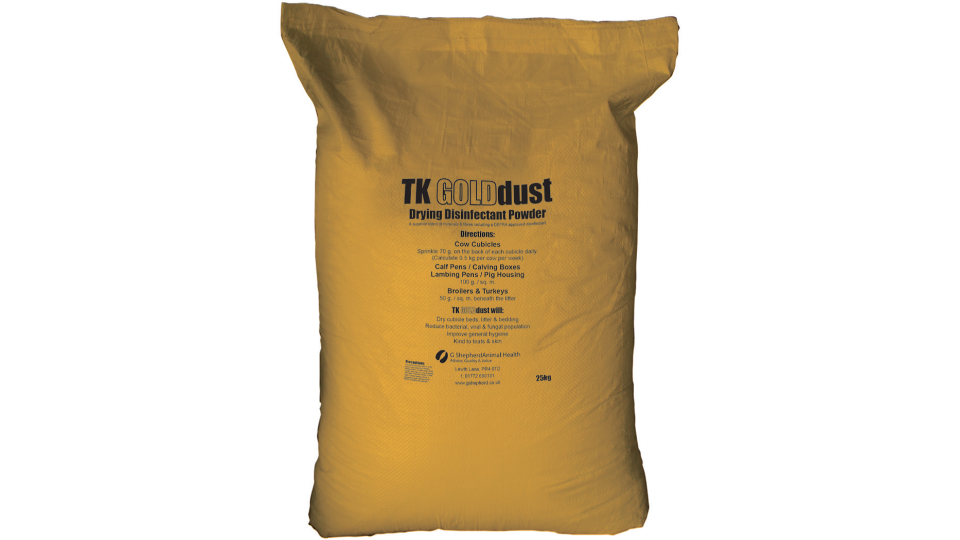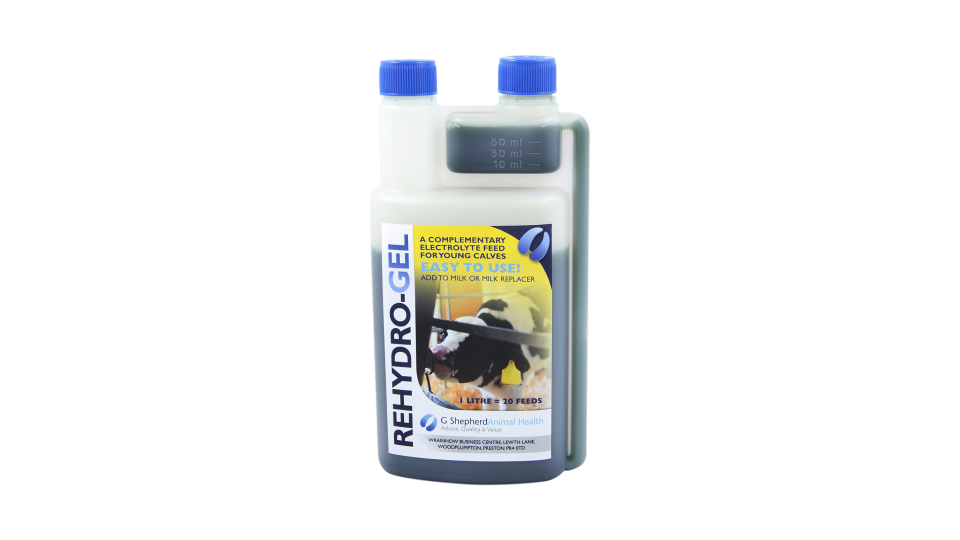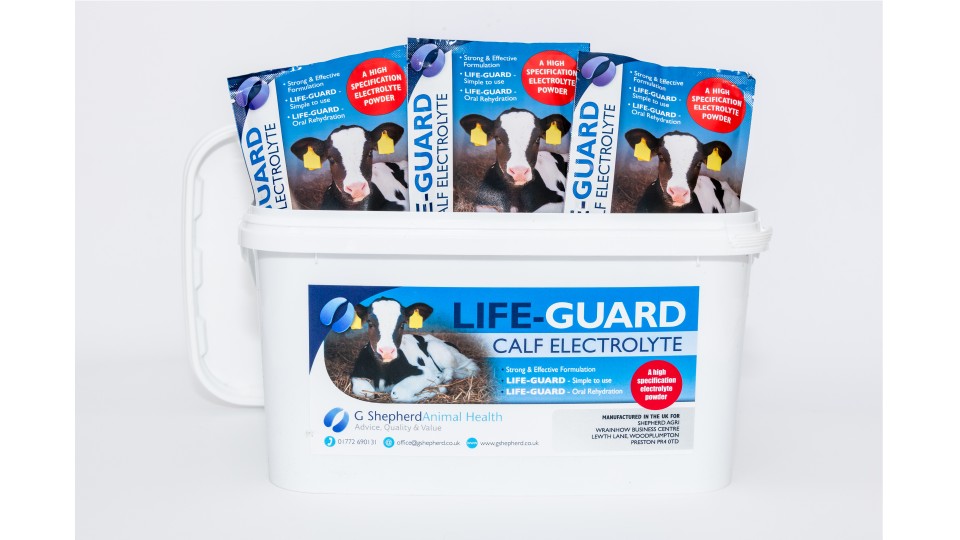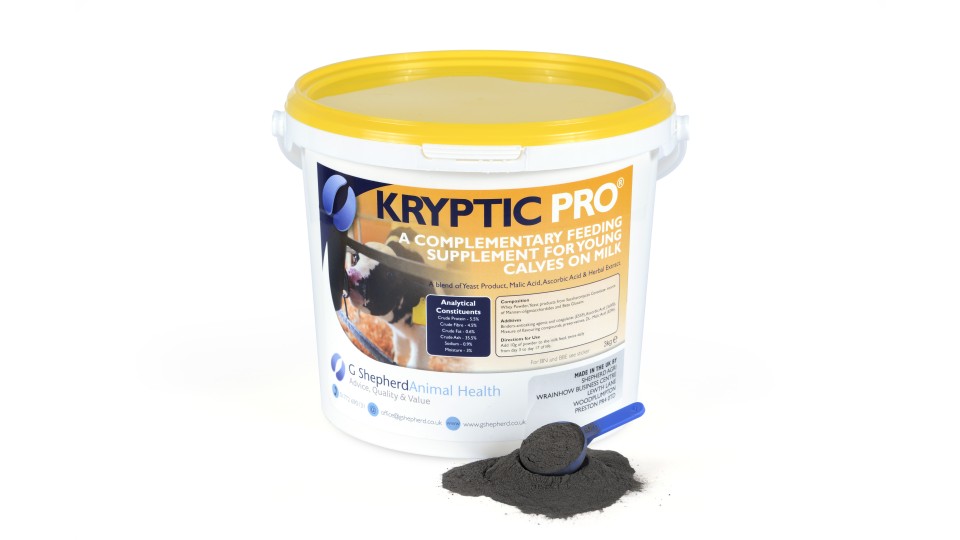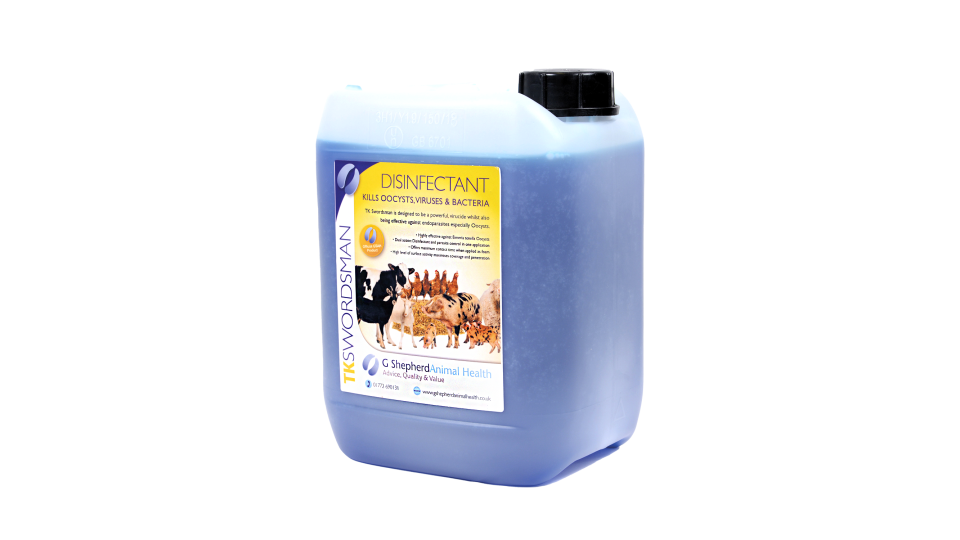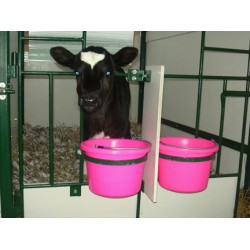Cryptosporidiosis is one of the most common causes of calf scour in the UK and can have devastating consequences on pre-weaned calves. Dr Graham Shepherd explains some simple steps farmers can take towards controlling this deadly disease.
“Farmers are experiencing repeated problems with the same issues with calf diarrhoea yet there are steps to take that can help break that pattern,” says Dr Graham Shepherd of G Shepherd Animal Health.
The company conducted a survey last year which revealed that calf diarrhoea was still the biggest cause of mortality. “According to APHA, cryptosporidium is the biggest cause of infections scour in calves,” says Dr Shepherd.
“It is also one of the leading causes of neonatal calf diarrhoea worldwide. Calves between seven- and 14-days post-infection have a significant reduction in growth rate, which is maintained over six months, affecting many elements linked to growth such as age at service, and lifetime performance.
“The protozoa causing the problem sheds large numbers of eggs in the faeces of infected calves and cows,” explains Dr Shepherd, “contaminating bedding, and both soil and water when stock are out at grass. Ingested food or water, contaminated with eggs then infects calves, and after being ingested these eggs rapidly multiply destroying the gut lining. This results in symptoms including watery and sometimes bloody diarrhoea, poor nutrient absorption, dehydration and, in severe cases, mortality.
“The “eggs”, known as oocysts, are thick-walled, enabling them to survive for long periods of time, and withstand a high range of temperatures, and as a result they are very difficult to remove from the farm with the most commonly found farm disinfectants. Dr Shepherd advises farmers to check their disinfectant is up to scratch and has been tested against cryptosporidium.
“When using a controlled disinfection programme, the number of infections and organisms to which the calf is exposed are reduced,” adds Dr Shepherd. “Calf health should be a top priority, as how they are looked after in early life affects their adult life, essentially saving both time and money in the short term, and supporting cow performance and productivity in the longer term”.
Dr Shepherd suggests farmers start by finding out the cause of the calf scour by testing, so they know what bugs they are dealing with in their prevention strategies. Using the right kind of cleaning and disinfection protocols for the type of bacteria you are dealing with means you can kill the source, so it isn’t a problem for the next calf or batch of calves. Farmers should also look at their vaccination and treatment protocols in aiming for a scour free zone in their calf sheds.
Currently there are no vaccines available and only two licenced products for the prevention and treatment of cryptosporidiosis in calves in the UK. Dr Shepherd therefore advises farmers adopt strategies to reduce the infection pressure:
- Colostrum quality and quantity.
- Plenty of fresh dry bedding.
- Good drainage.
- Disinfection footbath protocols in and out of the calf building to reduce transmission between pens and buildings.
- Batch system where possible - clean out pens, and power wash with detergent, followed by steam cleaning and a final disinfection with a cryptosporidium proven disinfectant such as TK Swordsman.
Prevention and treatment:
- Effective cleaning and disinfection protocols are essential as a thoroughly cleaned and disinfected pen aids the health of calves and impacts mortality rates.
- People handling livestock can also be potential sources of infection, having good hygiene procedures in place is critical- clean overalls and boots at a minimum.
- “Know your enemy!” Dr Shepherd advises dung testing in all scour outbreaks to confirm the infection, identifying the best approach for treatment relative to the type of infection, for example identifying if it is a nutrition or infection-based issue.
- The cornerstone of treatment is rehydration, and he advises aggressive treatment using oral electrolytes, such as “Life Guard” or “Rehydrogel” to rehydrate the calf.
Farmer case study
Paying close attention to hygiene has paid dividends with tackling animal health issues including calf scour for Derbyshire farmer Martin Sales. Based in Kingsley he milks 180 Holstein Friesians on an all-year-round calving system with impressive health statistics including a bactoscan of 20 and somatic cell count (SCC) of less than 100. With little or no calf scour and associated calf mortality, Martin firmly believes that his easy, cost-effective and replicable solutions are making a huge difference.
“We identified calf scours was becoming a costly issue for us, impacting calf health and performance as well as taking up time. Working with our vet we identified cryptosporidium was one of the culprits and we set about looking at different protocols to manage, but more importantly to prevent, the issue in the first place.
“One of the areas we identified was hygiene so we committed to a rigorous cleaning and disinfection protocol to tackle the disease.” Since using TK Swordsman disinfectant for the past two years, Martin has found that calf scour and resulting calf mortality has been eliminated and he puts this down to the product. “It’s been a fantastic investment for the business,” says Martin.
“The more you clean and disinfect, the fewer problems you will have,” says Martin. “We hardly ever see mastitis, and we have had no problems with calf scour for the past couple of years. The answer is to keep on top of it, make sure you use a good disinfectant and then use it again.”

